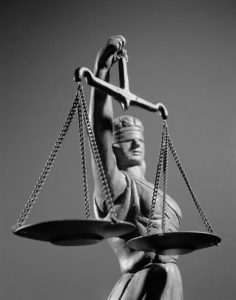This is the first reflection on Judgment & Justice (24 mins), introducing us to many of the weighty themes sustained throughout the book of Isaiah.
Click on the arrow to play the podcast, or you can use the "download" icon to download the podcast (if available). You can also right click here, in order to save the audio file and listen later.
Come Now, Let Us Reason Together
Images of the Messiah: Glorious King (chapters 1-37), Suffering Servant (38-55), and Coming Conqueror (56-66). Contrast with Israel’s inglorious, self-centered, and (ineffectual) monarchs.
v.1—vision (see Num 12:6-8). Judah and Jerusalem: specific historical context. These four kings reigned 740-686 BC. Learn about their fascinating lives in the books of Kings and Chronicles. Isaiah is speaking into the events and people groups of the 8th century BC, although the book also contains prophecy about the 7th and 6th. His prophetic horizon does not include the 21st C, or the end of the word, except in the most symbolic and general way—as we'll see later in the series.
vs.2-3—God is plaintiff in a lawsuit against his people. Then comes the imagery of family—father and rebellious children. Lawsuits are common scenes in the prophets. See, for example, Amos 3:9-11. Then there are animals exhibiting more intelligence than the people of Israel, at least with respect to their master.
v.4—Israel became a nation half a millennium earlier, after Moses led them out of Egypt. The kingdom divided in 931, into northern Israel and southern Judah. Isaiah is preaching to southern Judah and its capital, Jerusalem. Israel became estranged to God through her idolatry. See Ezek 14:5. They "despise" God—see Luke 16:13. They deal corruptly with others—God will not accept us when we mistreat others.
v.5—Image of a bruised and bleeding person, whose wounds are not being treated. (See Jer 6:13-14.) It's as though Israel is being pummelled to death in a bloody fight. And this isn't necessary! To the extent that she rebels she is self-destructive, inflicting the wounds on herself. "Why will you still be struck down? Why will you continue to rebel?"
vs.7-10—Foreigners (the Assyrians) have invaded the land. The northern capital city of Samaria fell, and the northern kingdom of Israel was led into captivity in 722 BC. But their ravages extended also to the southern kingdom of Judah, where most towns fell to the Assyrians. Jerusalem was one of the few still standing. Like a hut in the midst of a cucumber field, Jerusalem remain standing, although surrounded by destruction. There's a parallel in Amos 3:12. She is threatened with destruction herself—like Sodom and Gomorrah (Gen 19). Read Ezek 16:49 for insight into Sodom's deep sinfulness: pride, arrogance, gluttony, nonchalance, neglect of the poor. Social justice was neglected.
vs.11-15—Solemn assembly (religion) is rendered null and void by iniquity (not treating others fairly). See Isa 59:3. There's also a parallel in Amos 5:21-24. (Amos was a contemporary of Isaiah.) The word "abomination" (v.13) is the same used to describe pagan practices (Lev 18:22; Deut 7:25; 2 Kings 23:12)—but here referring to the Jerusalem temple! The "blood" (v.15) isn't the blood of sacrificial animals; this refers to the oppression of the poor and needy.
vs.16-17—Nine commands: "Wash yourselves; make yourselves clean; remove the evil of your deeds from before my eyes; cease to do evil, 17 learn to do good; seek justice, correct oppression; bring justice to the fatherless, plead the widow's cause." Today Christians should treat their employees fairly, and never take advantage of them. We should comfort the lonely (especially the elderly), share our money, adopt orphans, not turn a blind eye to oppression, etc.
vs.18-19—“Come now, let us reason together, says the Lord: though your sins are like scarlet, they shall be as white as snow; though they are red like crimson, they shall become like wool." Snow and wool are naturally white, not artificially so. Genuine cleansing is available only from the Lord. We cannot confer it upon ourselves. But we must be reasonable. God is not arbitrary, nor are his demands unfair. Obedience or rebellion: each has its own consequences.
Conclusion
- Idolatry and social injustice are two sides of a coin.
- God punishes his people through foreign invaders.
 But there is hope—if they will listen, reason, and be obedient.
But there is hope—if they will listen, reason, and be obedient.
Next: Two Cities, Unquenchable Fire, & a Glorious Future.
There are also daily tweets from New Year’s Day until mid-April 2021, featuring key passages from Isaiah.









